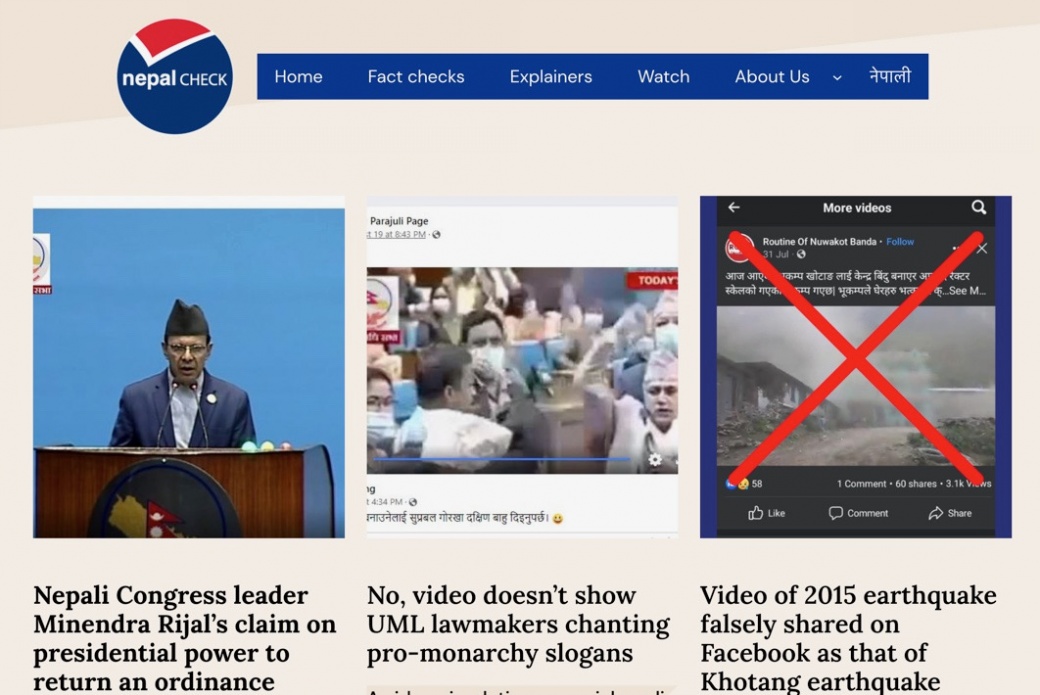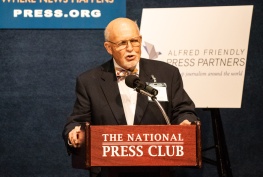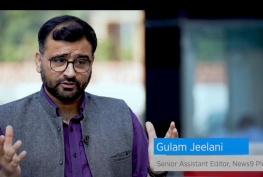Deepak Adhikari is a Kathmandu-based freelance journalist and a 2008 Alfred Friendly Fellow. He covers socio-political issues in Nepal including human rights, environment, hydropower, tourism, trafficking and geopolitics. His work has appeared in Time magazine, The Caravan magazine, Al Jazeera English and others. From 2010 to 2014, he served as Nepal correspondent for the global news agency Agence France-Presse (AFP).
 In 2021, he collaborated with two other journalists for a major investigation into tax evasion. Adhikari said the Alfred Friendly fellowship had “a tremendous impact on my career. The fellowship and my work at the (Pittsburgh) Post-Gazette boosted my confidence. As a result, I started doing ambitious reporting projects.”
In 2021, he collaborated with two other journalists for a major investigation into tax evasion. Adhikari said the Alfred Friendly fellowship had “a tremendous impact on my career. The fellowship and my work at the (Pittsburgh) Post-Gazette boosted my confidence. As a result, I started doing ambitious reporting projects.”
In summer 2022, Adhikari founded Nepal Check, which publishes both in English and Nepali languages and can be followed on Twitter and Facebook. This fact checking website authenticates or dismisses claims made by public officials while also providing detailed reports that simplify complex topics. Adhikari explains more about his site and the work that went into creating it.
The following Q&A has been edited for length and clarity:
What compelled you and your colleagues to establish a fact-checking platform?
The news media in Nepal is facing a crisis of credibility. Like elsewhere in the world, misinformation and disinformation, lies and propaganda abound in Nepal. Because the reporters mostly publish a politician’s speech without much scrutiny, they are getting away with lies. People tend to believe false claims from public officials if left unchecked.
This is where we come in. We fact-check statements made by politicians, public and elected officials. We provide ratings (true, false, misleading, etc.) at the end of our report. We also hold social media companies to account for mis-and disinformation spreading on their platform.
The lack of thorough and comprehensive reporting on issues of public interest has created an information void in Nepal. At Nepal Check, we see it as our job to fill the void. We explain critical issues to our readers so that they can understand what’s going on and can make informed decisions.
Are there fact-checking platforms that had features you emulated?
Yes, the United States’ pioneering fact-checking platform, factcheck.org, is one of our inspirations. We also try to emulate PolitiFact, which pioneered political fact-checking. South Asia Check, where I worked for two and a half years as the editor, is also an inspiration. We also emulate the political fact-checking by Full Fact in the UK.
Not everything can be fact-checked. Sometimes, materials from your research on a fact-check can turn into a good explainer piece, which could be on pressing issues that Nepali readers should know about. For explainers, we follow models established by Vox and Indian Express.
We follow the code of principles developed by the Poynter-based International Fact-checking Network.

How will you fund the platform and will it continue after the elections in November?
We are applying for funding from international funders, but for now, it’s mostly a volunteer effort. We do it because we are passionate about it. We have committed our time and expertise toward building a reliable and trustworthy repository of facts. We will continue our endeavor beyond the November elections. Elections or not, we will continue to fight bad information.
What are the biggest problems facing Nepal now?
Corruption is one of the major issues facing Nepal. It happens in multiple ways, ranging from bribing a traffic policeman or a low-level officer to receiving huge kickbacks for contracts or licenses. There’s collaborative corruption in Nepal, where all major political parties are working hand in glove with one another to exploit the country’s resources. There’s also impunity and immunity for corruption in Nepal. Related to this is the lack of good governance. The Nepali state has largely failed to deliver on its promises, which has eroded the credibility of state institutions.
The country imports most of its consumers’ and other goods. The sources of foreign currency, which is required to import essentials, are only a few (remittances and tourism). With dwindling foreign currency reserves, we may face an economic crisis soon. The government, which is keen for its alliance to win the November polls, doesn’t care about these challenges facing the country. Bereft of any prospects or job opportunities at home, thousands of young people leave the country for employment in foreign countries. Ironically, the country lacks skilled human resources while its youth build stadiums in Qatar and pick fruits in the United Kingdom.
What are a few examples of misinformation and disinformation that Nepalese have read or heard recently?
Nepal Check recently debunked two major instances of election-related misinformation. Bishnu Rimal, a top opposition party leader, shared a series of infographics on his Twitter and Facebook accounts, claiming that the economic indicators (Nepali rupee’s exchange rates with USD, foreign currency reserves, etc) were better under the previous government (led by his party). We debunked his claims here and here.
Earlier at South Asia Check, we fact-checked a viral photo of a meeting between the mayor of Kathmandu and the country’s president, which was old but claimed to be recent.

Nepalese fellows, including Adhikari (third from left), held a reunion celebration in Kathmandu on Sept. 7 with Alfred Friendly board members Randy Smith (center) and Sri Ramakrishnan (far right)





